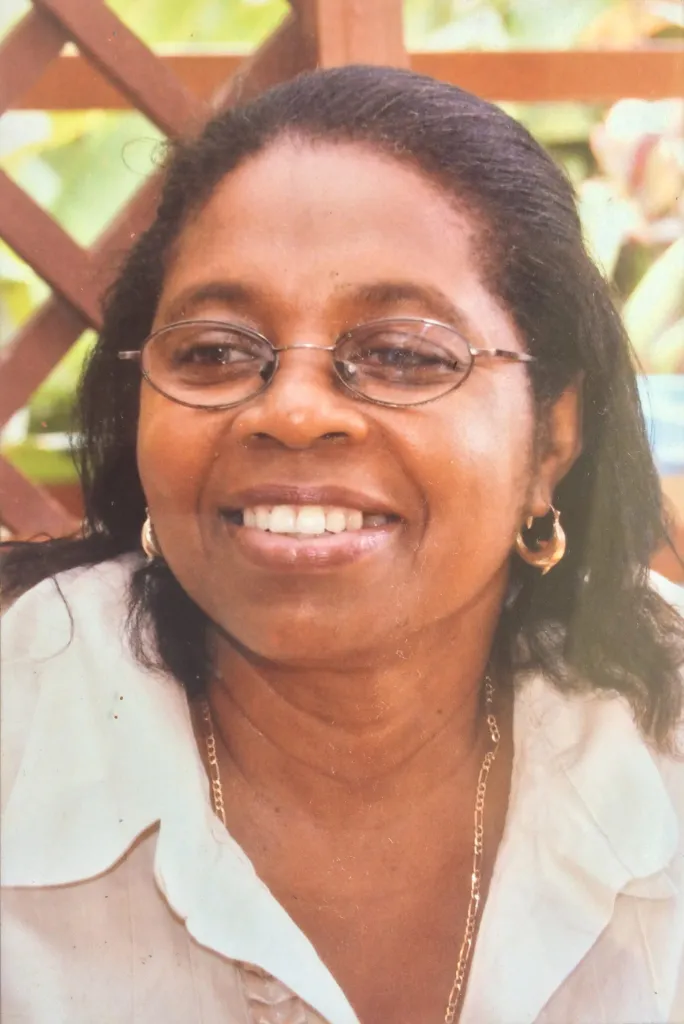The former teen star cricketer who, during a psychotic meltdown, killed a retired nurse in her home at Kingstown Park in 2016, has been sentenced to be detained at the court’s pleasure.
During his detention, Jurani Baptiste, 25, of Sandy Bay, will continue to receive treatment for his mental health condition and would reappear before the court after three years.
Justice Brian Cottle, in a sentence handed down at High Court No. 1, today (Wednesday), said that the court would then assess whether Baptiste is fit for release.
If the court determines he is not fit for release, Baptiste would be re-evaluated every two years until the court is satisfied that it is safe to do so.
Baptiste was sentenced for manslaughter, in connection with the Nov. 14, 2016 slaying of Pamela Williams, 59, at her Kingstown Park home.
Three other people were killed over few hours on the night of Nov. 13, 2016 and while Baptiste was charged with one of the killings, police said then that they were looking for no other suspect in relation to the others.
Baptiste has been in prison since he was arrested at Williams’ home on Nov. 16, 2016.
On March 9, 2023, after years of receiving treatment for his mental health conditions, he pleaded guilty to a charge of manslaughter by virtue of diminished responsibility.
Baptiste could have been sentenced to a maximum of life imprisonment, which the court interprets to mean a notional sentence of 30 years.
The facts, as outlined by the judge, are that Williams was killed in the early hours of Nov. 14, 2016.
Florence Glynn, Williams’ sister, who lived next door, was awakened by the sound of dogs barking but saw nothing unusual when she looked out her window.
She then received a telephone call from Williams, but heard nothing on the line when she answered.
Glynn went to Williams’ home and saw her at the bedroom window trying to open it. She also saw Baptiste in the background in the room.
Baptiste struck Williams several blows using an object that he had in his hands.

Glynn called neighbours for assistance and two men responded and, after a protracted struggle, were able to apprehend and subdue Baptiste.
Baptiste tried to get out of the house but the men prevented him from doing so. Other villagers who were awakened by the fracas came to the scene and assisted in subduing Baptiste.
Williams was pronounced dead at the scene and police recovered a stone near her body.
An autopsy concluded that she died of multiple stab wounds and severe blunt force trauma to the head. There were multiple fractures to the skull, causing Williams’ head to be grossly deformed. Her skull was so fractured that the bone fragments were kept in place only by the scalp and her brain was lacerated in many locations, Justice Cottle said.
Baptiste was taken to hospital for medical attention, having been injured during the struggle with villagers who tried to restrain him.
The following day, after Baptiste had received medical attention, police interviewed him and he said that voices in his head had told him he now had the power and that he should go and fight.
He told the officers that the voices had not told him to kill.
The judge said that a Sept. 3, 2020 psychiatric report showed that Baptiste has a history of mental illness.
He was first referred for mental health care by a district medical officer because he had been displaying abnormal behaviour.
Baptiste was diagnosed with cannabis use disorder and psychotic symptoms.
He did not keep his appointment for follow-up visits with the mental health professionals and in September 2016 was again admitted to the Mental Health Centre.
In June 2020, Baptiste was evaluated again and he was found to be still psychotic, displaying symptoms of bipolar disorder, and in need of continued medical care. He continued to receive medical care and was evaluated again in February 2021, and the psychiatrist opined that he was fit to stand trial.
The judge said that Baptiste continues to receive medication daily to suppress his anxiety and mood swings.
During his younger years, Baptiste represented St. Vincent and the Grenadines in youth cricket and was a middle order Baptiste, Justice Cottle said, citing a social inquiry report.
In the report, Baptiste said he used to be a habitual user of cannabis but no longer uses the drug.
He said he now understands the nature and gravity of his actions and has expressed sincere remorse.
The judge noted the classical aims of sentencing, namely, retribution, deterrence, prevention, and rehabilitation.
He quoted then Justice of Appeal Rawlins who said the sentencing judge is required to consider fully two fundamental facts: the facts and circumstances surrounding the commission of the offence and, on the other hand, the character and record of the offender.
Justice Rawlins said the judge may accord greater weight to the circumstances surrounding the offence, but the relative importance of each of these factors may vary according to overall circumstances of the case.
Justice Cottle noted that manslaughter is a serious offence that reflects the fact that a life has been lost, hence the maximum penalty of life imprisonment.
He noted that in SVG, there are sentencing guidelines for manslaughter but none for manslaughter by reason of diminished responsibility.
Justice Cottle said the fact that Baptiste was convicted of manslaughter by reason of diminished responsibility is an indication to the court that his mental responsibility for his actions and his ability to make rational decisions and exercise self-control must have been substantially impaired.
He said there is a wide spectrum of impairment within which such cases fall, with some offenders being near normality and other bordering insanity.
A sentencing judge would be assisted by medical evidence which would assist in determining the level of responsibility that any particular offender has retained, Justice Cottle siad, adding that this would help to determine a starting sentence.
He said that the judge must also bear in mind the need to protect the public from some offenders by removing them from society if they pose a continuing danger.
Medical evidence would also assist in this regard, the judge said, adding that the court noted the fact that in SVG facilities for the treatment of mental offenders remain quite limited.
He said that in Baptiste’s case, the medical evidence, though scant, shows that he requires sustained medical treatment to maintain his mental stability.
He said that the report shows that in the past, when Baptiste was required to attend medical facilities as an outpatient, he failed to comply with the prescribed regime.
Justice Cottle said he saw the case as one in which the court would have to supervise Baptiste’s treatment.
The court further noted that Baptiste had been on treatment for the past seven year.
After the judge handed down his sentence, defence counsel Kay Bacchus-Baptiste asked where Baptiste was to be detained.
Justice Cottle said there is only one facility, referring to prison.
Bacchus-Baptiste said that ordering that Baptiste be detained at the Mental Health Rehabilitation Centre would have been worse.
Earlier, in her sentencing submission, Bacchus-Baptiste urged the court not to treat Baptiste as any other person who had committed manslaughter.
She asked the court to, as it had done in the past, commit Baptiste to prison and set a regular period for reporting to the court so as to ensure that “he is not lost in the system”.
The lawyer suggested a reporting period of every two years.
“I really, really urge that he not be just lumped and treated as an ordinary defendant who committed an act of manslaughter by an unlawful act and be given 20 or so year or 25 life and just left in prison at the mercy of whether he takes his medicine or not,” Bacchus-Baptiste said.
“It really, I think, would be a safe reflection of who we regard as patients who are mentally ill in our society,” she said.
At Wednesday’s sentencing, Crown Counsel Renee Simmons held for Assistant Director of Public Prosecution, Tamika McKenzie on behalf of the Crown.






